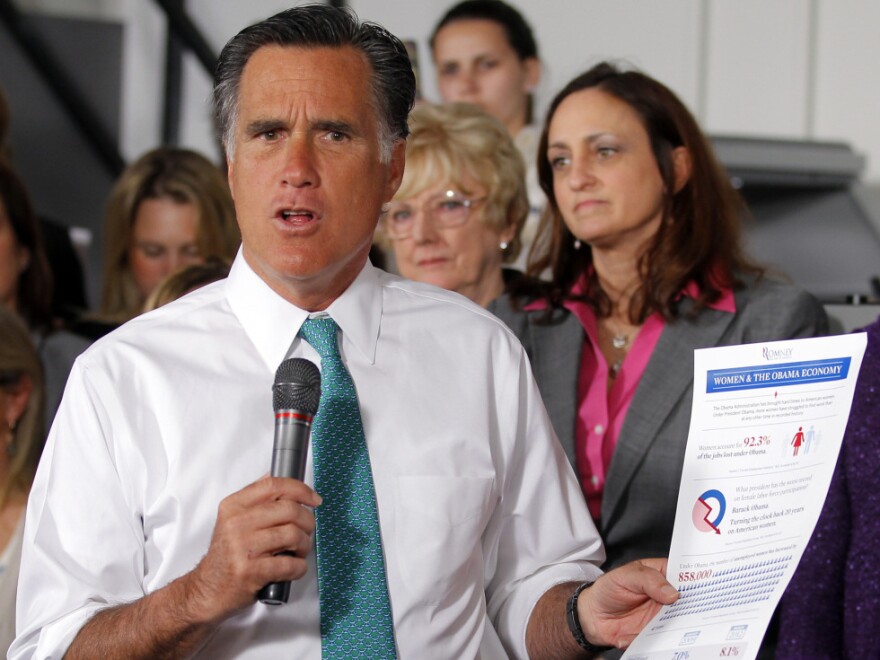Throughout the GOP primary season, Mitt Romney struggled among voters who make up many of the party's key constituencies, including Southerners, evangelicals, those living in rural areas and members of the white working class.
Now that he has the Republican presidential nomination all but sewn up, such voters are the least of Romney's worries.
In fact, the type of Republican voters who were most skeptical about the former Massachusetts governor may end up being among his most certain supporters.
"These are precisely the people who are least likely to vote for Barack Obama," says Scott Keeter, a pollster with the Pew Research Center.
Romney does face a challenge that presents itself to many newly minted nominees — wooing centrist independents, while not alienating his party's more ideologically minded core constituents.
That might seem like a particular problem for Romney, because of the distrust many conservative Republicans have expressed about him during the primaries. But it's not likely to hurt him even in areas where he looked the weakest against GOP opponents this year, including the Deep South.
Merle Black, an expert on Southern politics at Emory University in Atlanta, predicts that Romney will win all eight of the Southern states that Arizona Sen. John McCain carried as the GOP nominee in 2008 — and may add others to that haul.
Romney may not have carried conservative voters when they were offered a choice between him and more ardently conservative candidates. But, when the choice is reframed as one between Romney and President Obama, Romney should have no trouble among that constituency, Black says.
"For most folks, he was not their first choice, but he is a much higher preference than Obama is," says Charles Bullock, a University of Georgia political scientist.
Bullock points that out some evangelicals may be wary of casting a vote for Romney because of his Mormon faith, but doubts that enough will stay home to tilt any Southern states toward Obama.
Elsewhere, the question will be whether voters who failed to embrace Romney as the prospective nominee will give him their full-throated support in the fall — not just showing up to vote for him, but lobbying their neighbors and sending in campaign contributions, too.
"He still has to run a campaign, certainly," says Ed Goeas, a Republican pollster with the Tarrance Group. But Goeas suggests that national polling data show greater intensity of interest in the election among Republicans than Democrats.
"The natural energy of antipathy towards Obama among people who were least enthused about Romney's candidacy guarantees there will be a decent turnout among them," Keeter says.
But if political observers expect Romney will have few problems shoring up the GOP base, that leaves open the question of whether he can broaden his appeal to capture swing voters. That's what campaigns are all about.
Copyright 2020 NPR. To see more, visit https://www.npr.org.



